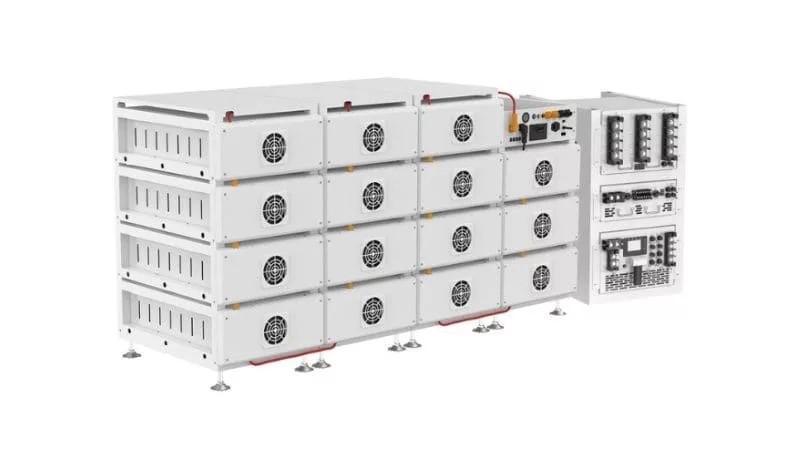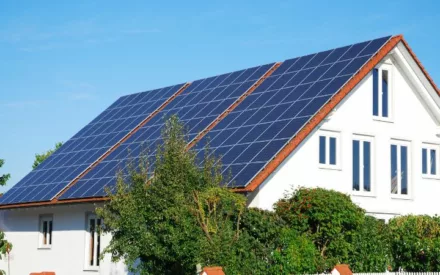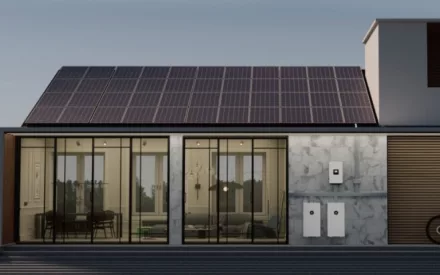Can Solar Batteries Explode? Are They Safe?
Solar batteries are generally very safe when installed and used properly.
Solar battery systems come in different types, like lead-acid and lithium-ion. Each has its own safety features. The risks of fire or explosion are very low if you follow some basic safety tips.
Your solar setup can give you peace of mind along with clean energy. Proper care and regular checkups help keep your battery storage system running smoothly. With the right precautions, you can enjoy the benefits of solar power without worry.

Can Solar Batteries Overheat?
Solar batteries can get warm during use. It’s important to know how hot they can safely get and what temperatures are best for them. Keeping your batteries at the right temperature helps them work well and last longer.
How Hot Can Solar Batteries Get?
Solar batteries can heat up, but they shouldn’t get too hot. Most batteries work best between 68°F and 86°F (20°C to 30°C). They can handle temperatures up to 113°F (45°C), but this isn’t ideal.
If your battery gets hotter than 113°F, it might not work as well. It could also wear out faster. In extreme cases, very high heat could damage the battery or even cause safety issues.
To keep your batteries cool:
- Put them in a shaded spot
- Make sure there’s good air flow around them
- Use a cooling system if needed
Does a Solar Battery Get Hot While Charging?
Your solar battery can warm up a bit when charging. This is normal and happens because of the chemical reactions inside. But it shouldn’t get very hot.
If you notice your battery getting really warm while charging, check these things:
- Is the charger working right?
- Are the connections clean and tight?
- Is the battery in a cool, well-ventilated place?
Proper charging is key. Use the right charger for your battery type. Don’t overcharge your battery. This can cause extra heat and might harm your battery over time.
What is the Recommended Temperature?
The best temperature for most solar batteries is between 68°F and 77°F (20°C to 25°C). This range helps your battery work well and last longer.
Try to keep your battery in this temperature range:
- When it’s charging
- When it’s discharging (being used)
- When it’s just sitting idle
If it’s too cold or too hot where you live, you might need to take extra steps. You could insulate your battery area or use a temperature control system.
Remember, extreme temperatures can affect how much power your battery can hold and how long it lasts. Keeping it at the right temperature is a smart way to protect your investment.
Can Battries Explode If They Get Too Hot?
Yes, batteries can explode if they get too hot. This is a real safety concern for solar battery owners.
When a battery overheats, it can lead to a dangerous situation called thermal runaway. This happens when the heat causes chemical reactions inside the battery to speed up, creating even more heat.
If the temperature keeps rising, the battery might catch fire or explode. This can cause property damage and put people at risk.
Some things that can make a battery overheat include:
- Overcharging
- Short circuits
- Physical damage
- Exposure to direct sunlight
- Being charged too quickly
Most solar batteries are designed to handle high temperatures. But there’s a limit to how hot they can safely get.
To keep your solar batteries safe:
- Don’t leave them in direct sunlight
- Make sure they’re installed in a cool, dry place
- Use proper charging equipment
- Check for any signs of damage regularly
If your battery feels too hot to touch or you notice any unusual smells, turn it off right away and call a professional.
By taking these precautions, you can greatly reduce the risk of battery fires or explosions in your solar system.
How to Keep Solar Batteries Cool?
Keeping your solar batteries cool is key for safety and performance. Good temperature control helps your batteries last longer and work better. Here are some tips to keep things chill.
Keeping the Battery Indoors
Put your solar batteries inside whenever you can. A cool, dry spot in your home or garage works great. Basements are often good choices. The steady indoor temperature protects batteries from outdoor heat swings.
Aim for a spot that stays between 60-80°F. Too hot or cold can hurt the battery. If you live somewhere very warm, consider a small AC unit just for the battery area. This extra step can really pay off in battery life and safety.
Do Batteries Need Ventilation
Yes, your solar batteries need some airflow. Good ventilation helps prevent heat buildup and removes any gases that might form. Don’t stuff batteries in tight, closed spaces.
Leave some room around each battery for air to move. Fans can help if natural airflow isn’t enough. Some battery types need more ventilation than others. Check your battery’s manual for specific needs.
Make sure vents stay clear. Dust or objects blocking air movement can cause problems. Clean the area regularly to keep air flowing freely.
Keep the Battery Away From Heat Producing Appliances
Keep your solar batteries away from things that make heat. This means no placing them near:
- Furnaces
- Water heaters
- Dryers
- Ovens
These appliances can raise the temperature around your batteries. Even a few degrees can affect battery life and safety over time.
If you must put batteries near heat sources, add extra insulation. A heat barrier can help keep the battery area cool. Remember to check temperatures often if heat sources are nearby.
Are Solar Lithium Batteries Safe?

Solar lithium batteries are generally safe when used properly. They have some advantages over other battery types. Different lithium battery chemistries offer varying levels of safety and performance.
What Makes These Batteries Different?
Lithium-ion batteries pack more energy into a smaller space than lead-acid batteries. This makes them great for solar energy storage. But it also means they can get very hot if something goes wrong.
These batteries have a special liquid inside called an electrolyte. If it leaks, it can cause problems. Lithium batteries also don’t like being overcharged or completely drained.
To stay safe, solar lithium batteries have protection systems built in. These stop the battery from getting too hot or charged too much. Some even have fire-resistant cases.
Which Solar Lithium Batteries are Safest?
Lithium iron phosphate (LiFePO4) batteries are known as the safest type for solar use. They don’t heat up as much as other lithium batteries. This makes them less likely to catch fire.
Here’s a quick comparison of common solar battery types:
- LiFePO4: Very safe, long-lasting
- Lithium nickel manganese cobalt: More energy, but higher fire risk
- Lead-acid: Tried and true, but bulky and shorter-lived
When picking a solar battery, look for ones with good safety ratings. Check if they’ve been tested by trusted groups. Also, make sure they’re installed by experts who know how to set them up safely.
Regular check-ups can help spot issues before they become dangerous. Keep an eye out for any swelling or weird smells from your batteries.
Choosing the Right Solar Battery
When considering solar batteries, safety and reliability are paramount. Among the various types available, lithium iron phosphate (LiFePO4) batteries stand out for their exceptional safety profile and longevity. They are less prone to overheating and thermal runaway. Excellent for solar energy storage.
For those looking for a dependable solution, Deye ESS battery series offers a range of low-voltage and high-voltage options designed specifically for residential and commercial applications. Deye batteries feature advanced lithium iron phosphate technology, ensuring safe operation and a long lifespan of over 6000 cycles.
With intelligent battery management systems and modular designs, Deye batteries provide flexibility and efficiency for your solar energy needs.




